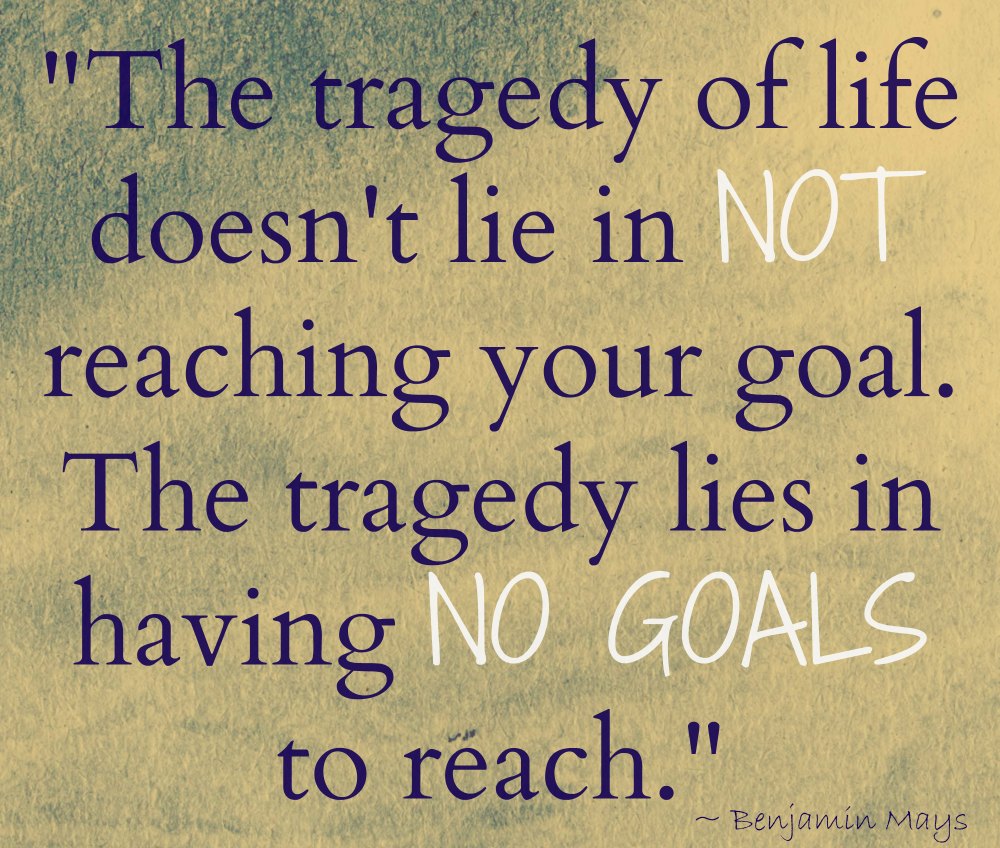Goal setting is an essential component of personal growth, success, and overall well-being. By focusing on the key areas of life to set goals in, you can create a well-rounded approach to achieving your dreams and living a more fulfilling life.
In this comprehensive guide, we will explore the various areas of life that should be considered when setting goals, as well as provide tips and strategies for success in each area. So let’s dive in and start creating the life you’ve always envisioned!
1. Positive Surroundings: Creating an Inspiring and Nurturing Space
Your surrounding environment has a substantial bearing on your state of mind, the amount of work you get done, and your general health and happiness.
You may make a location that encourages personal development, creative endeavors, and mental calmness by establishing objectives for your surrounding environment. The following are some environmental goals that should be considered:
1.1. Organize and declutter your living spaces
A clear mind and increased productivity are both benefits of having a room that is well arranged. Establish definite objectives for yourself to declutter and organize every space in your home, including your bedroom, your office, and the living areas.
1.2. Design a personal sanctuary
Make a room that is a reflection of who you are and what you’re passionate about. This space might be a warm and inviting reading corner, a serene meditation place, or a bustling home office where you can concentrate on achieving your objectives.
1.3. Go green
You can improve the air quality in your homes while also bringing a little bit of the outside inside by adding some plants. Make it a priority to water and tend to your houseplants so that they may make the most of the conditions within your home.
1.4. Develop a cleaning routine
The mental health benefits of keeping one’s surroundings clean and organized cannot be overstated. Create a regular cleaning schedule for your area so that it may remain attractive and odor free.
Your environment has a significant impact on your mood, productivity, and overall well-being. By setting goals related to your environment, you can create a space that fosters growth, creativity, and tranquility. Here are a few environmental goals to consider:
1.1. Organize and declutter your living spaces
An organized space promotes a clear mind and increases productivity. Set specific goals to declutter and organize each area of your home, including your bedroom, office, and living spaces.
1.2. Design a personal sanctuary
Create a space that reflects your personality and passions. This could be a cozy reading nook, a tranquil meditation area, or a vibrant home office where you can focus on your goals.
1.3. Go green
Incorporate plants into your living spaces to purify the air and bring a touch of nature indoors. Set a goal to care for and maintain your indoor plants, ensuring they thrive in your environment.
1.4. Develop a cleaning routine
Maintaining a clean and tidy environment is essential for mental well-being. Establish a regular cleaning routine to keep your space fresh and inviting.
2. Career Goals: Pursuing Professional Growth and Success
Your career is one of the more significant areas of life to set goals in. Consequently, setting goals related to your professional growth can lead to increased satisfaction and success at work. Consider the following career goals:
2.1. Seek opportunities for advancement
Identify opportunities for growth within your current job or industry and set goals to pursue them. This may include seeking a promotion, attending professional development workshops, or learning new skills to increase your value as an employee.
2.2. Network and build connections
Establishing strong professional relationships can open doors to new opportunities and help you grow in your career. Set goals to attend networking events, join professional organizations, or connect with others in your industry through social media.
2.3. Improve work-life balance
Achieving a healthy work-life balance is essential for overall happiness and well-being. Set goals to establish boundaries between your professional and personal lives, such as limiting work-related tasks to specific hours or prioritizing self-care and leisure activities.
2.4. Explore new career paths
If you’re feeling unfulfilled in your current role, consider setting goals to explore new career opportunities. This may involve researching different industries, attending informational interviews, or even taking a career assessment to identify your strengths and passions.
3. Financial Goals: Building a Stable and Prosperous Future
Having a secure financial situation is an essential component of leading a life that is meaningful. You may strive toward a future that is free of the anxiety and uncertainty that is associated with money if you create financial objectives for yourself. Consider the following monetary objectives:
3.1 Create a spending plan or budget.
Strong financial management begins with the formulation of a spending plan and continues with its vigilant upkeep. Make it a priority to record all of your income and spending, as well as the money you put toward savings, investments, and the reduction of your debt.
3.2. Build an emergency fund
In times of financial uncertainty, a financial safety net might be provided through an emergency fund. Aim to have at least three to six months’ worth of living costs stashed away in a savings account that is not connected to your main checking or savings account.
3. Pay off all of your debts
A big obstacle on the path to achieving financial independence is debt. Make it your mission to eliminate high-interest debt as rapidly as possible, such as the amounts on your credit cards, any outstanding school loans, or personal loans.
3.4. Plan for retirement
Ensuring your financial future is one of the most important areas of life to set goals. Therefore, the creation of a savings strategy for retirement is absolutely necessary if one wishes to ensure a nice and secure future for themselves.
Establish financial objectives to make consistent deposits into a retirement account, such as a 401(k) or an IRA, and investigate various investment opportunities to boost the size of your savings.

4. Relationship Goals: Cultivating Meaningful Connections
You may not think that you need to establish goals when it comes to relationships. This assumption is incorrect. In fact, because relationships can have a direct effect on your happiness, it is one of the more meaningful areas of life to set goals in.
When determining the aspects of one’s life to strive towards, it is important to take into account both happiness and satisfaction. Maintaining positive relationships is essential to one’s mental health as well as their own personal development.
If you want to develop deeper connections with your friends, family members, love partners, and even with yourself, setting objectives linked to your relationships might assist you in doing so. Take into consideration the following relationship goals:
4.1. Prioritize quality time
You should make it a priority to spend quality time with the people you care about, whether that takes the form of regular family meals, monthly get-togethers with friends, or date evenings with your significant other.
4.2. Improve Your Capacity for Effective Communication
Strong relationships are built on solid foundations of clear and effective communication. Make it a priority to actively listen to others, be honest about expressing your opinions and feelings, and find constructive ways to settle problems.
4.3. Nurture your relationship with yourself
It is absolutely necessary for one’s personal development and happiness to work on developing a positive relationship with oneself. Create a plan to include self-compassion into your daily life, make self-care a top priority, and spend more time doing things that bring you joy.
4.4. Build a support network
Put yourself in an environment with upbeat and encouraging people who will cheer you on to greater heights of achievement. Make it a priority to find others who share your interests and connect with them through social gatherings, groups, or online forums.
5. Personal Growth Goals: Becoming Your Best Self
The process of self-improvement, self-acceptance, and self-discovery are all integral parts of personal growth, which is a continual process. You may strive toward being the best version of yourself by defining personal growth objectives and working toward achieving those goals. Take into consideration these personal development objectives:
5.1. Embrace lifelong learning
Learning is one of the areas of life to set goals that will pay off in the long run. You should make it a priority to continue your education and develop your talents throughout your life. Make it a habit to read books, enroll in relevant programs, and participate in professional development events to advance your hobbies and/or job.
5.2. Develop healthy habits
Create rituals and patterns of behavior that are beneficial to your physical, mental, and emotional well-being. This may involve engaging in regular exercise, maintaining a healthy diet, meditating, or keeping a diary.
5.3. Cultivate resilience
The ability to overcome obstacles and difficulties is what we mean when we talk about resilience. Create objectives for yourself to build coping methods, maintain a growth attitude, and engage in positive thinking practices.
5.4. Pursue your passions
Finding what you’re passionate about and working for it might make for a more satisfying existence. Make it a point to broaden your horizons by trying out new pastimes, helping out causes that are important to you, or working toward the profession of your dreams.
6. Mental Health Goals: Fostering Emotional Well-Being
When determining which aspects of your life to strive towards, you should take into account your mental health because it is such an important factor in both your general well-being and the quality of your life. You may work toward obtaining emotional balance and resilience by creating objectives for your mental health. Consider the following recommendations for mental health:
6.1. Practice self-care
Put things that help you relax, relieve tension, and feel better emotionally at the top of your to-do list. Make it a priority to take care of yourself by engaging in self-care activities on a regular basis, such as practicing mindfulness, keeping a diary, or engaging in creative outlets.
6.2 Seek the assistance of a trained specialist.
If you are having issues with your mental health, you should seek the assistance of a trained expert. Make it a point to locate a therapist, participate in support groups, or investigate other options related to mental health.
6.3. Cultivate a positive mindset
Creating a more optimistic outlook on life can have a substantial effect on one’s mental health. You should make it a point to cultivate an attitude of thankfulness, participate in positive self-talk, and surround yourself with people and things that are uplifting.
6.4. Establish emotional boundaries
Establishing mental and emotional boundaries can be beneficial to one’s overall mental and emotional health. Make it a point to convey your limitations, sort your demands in order of importance, and keep your emotions apart from the expectations of others.
7. Physical Health Goals: Nurturing a Strong and Healthy Body
Maintaining a healthy body may have a big influence on your entire well-being, as mental and physical health are intricately intertwined and interdependent on one another. You may work toward achieving maximum health and vitality by establishing objectives for your physical health. Consider the following targets for your physical health:
7.1. Engage in regular physical activity
To enhance both your physical and mental health, make exercise a regular part of your routine and incorporate it into your daily routine. You should make it a priority to take part in activities that bring you delight, such as going for a stroll, swimming, or dancing.
7.2. Prioritize nutrition
Consuming food that covers all of your nutritional bases is critical to keeping your health in check. Make it a priority to eat a wide range of foods that are high in nutrients, such as fruits, vegetables, whole grains, lean proteins, and healthy fats.
7.3. Understand the importance of sleep
It is essential to both one’s physical and mental health to get an adequate amount of sleep. Establishing a regular sleep schedule, developing a soothing nighttime ritual, and creating a calm sleeping environment should all be goals that you set for yourself.
7.4. Monitor your health
Getting exams on a regular basis might help you spot any possible health problems before they become more serious. Make it a priority to schedule your yearly checkups, including dental cleanings, physical examinations, and other preventative screenings.
By focusing on these seven areas of life to set goals in, you can create a comprehensive plan for personal growth, success, and well-being. Remember to reevaluate your goals regularly and adjust them as needed to reflect your changing priorities and circumstances. With dedication and persistence, you can achieve your dreams and live a more fulfilling life!
Related article: The Ultimate Guide to Set Goals and Crush Them



No comments! Be the first commenter?